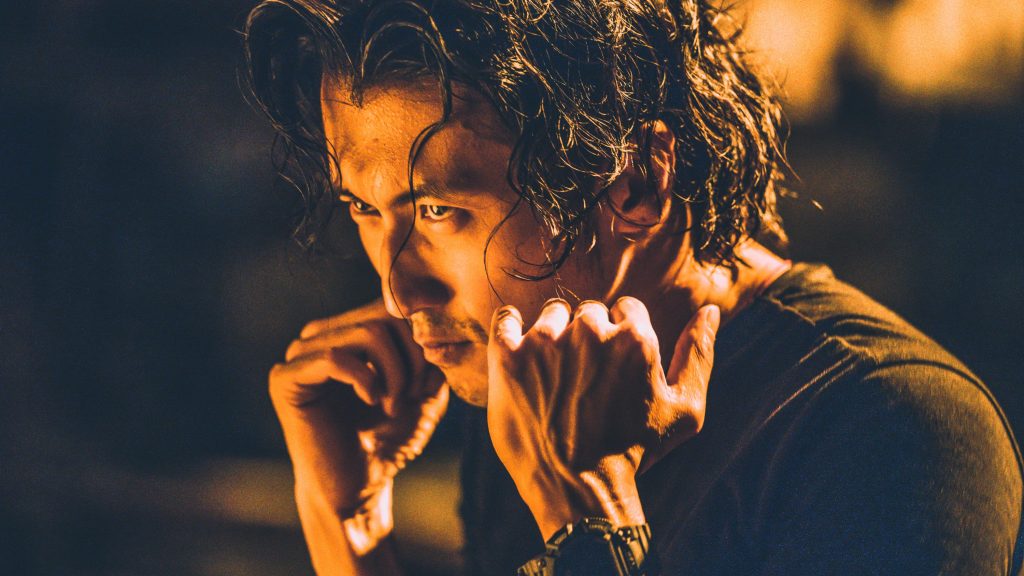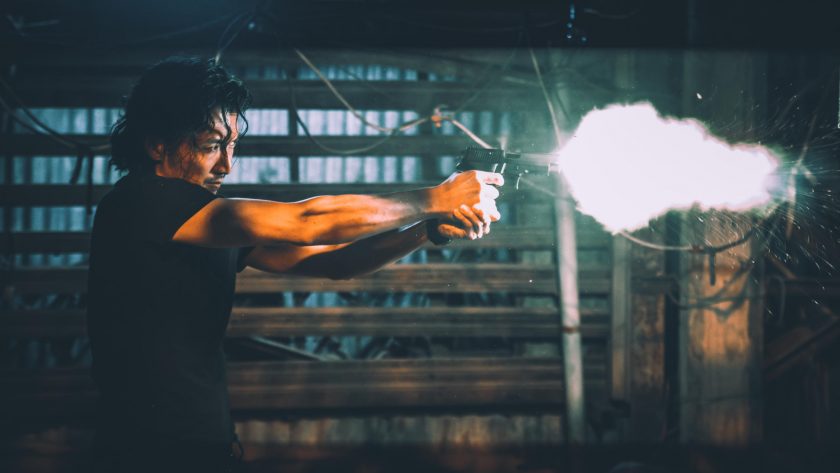LEAFF 2021 celebrates its sixth year with a programme of thirty films from celebrated and debut filmmakers. Championing East Asian cinema, LEAFF aims to bring a wide range of cinema to London and offer the opportunity to experience a new culture of cinema.
Kelly Hooy reviews Benny Chan’s blockbuster action-crime story of cops and their new exciting quests.
The sixth edition of the London East Asian Film Festival has made its big return to the city, opening with the electrifying Hong Kong crime thriller, Raging Fire — director Benny Chan’s latest and lamentably final directorial effort. An acclaimed figure in Hong Kong’s film industry, Chan’s filmography includes over 20 action films, even award-winning ones such as New Police Story (2004) and Big Bullet (1996). Included in his latest work are brilliantly choreographed martial arts, rapid shootouts and car chases — iconic elements of classic 90s Hong Kong cinema.
More than simply an action flick, Raging Fire compounds corruption, revenge, bloodshed and regret. Donnie Yen plays Bong, an honorable cop in the Regional Crime Unit in Hong Kong. Carrying a stoic demeanour in everything he does, it is revealed, through a patchwork of flashbacks, that Bong is haunted by a decision he made years ago — testifying against a group of colleagues in court, landing them in prison for killing a suspect at the behest of their corrupt superior. Part of the group is Nicholas Tse’s Ngo, Bong’s former protégé. He holds a fiery grudge against Bong and the police force for their betrayal at the peak of his career, and swears revenge on everyone responsible for his downfall. Once Ngo leaves prison, his festering resentment fuels him to lead his band of bandits (the group of ex-cops) on a trail of bloodthirsty crime.
If Raging Fire could be distilled into a single word, it would be “epic”. Every single scene, save a few more reflective ones, is either jam-packed with explosive action sequences, or soaked with the most captivating sort of suspense. Stylistically, Chan did an impeccable job. Playing with colours and editing, he paints visually incredible spectacles which magnify the already phenomenal face-offs. From musky backstreets awash in yellow hues to the shattering of kaleidoscopic stained glass windows, every scene is a treat for the eyes. The camera angles used are also masterfully varied — at one point during the showdown in the abandoned mall, I felt as if I had been whisked into a first-person shooter gun fight, the palpable intensity swelling up around me.
Where Raging Fire excels is in its action choreography. Creatively staged and never missing a beat, Donnie Yen’s physicality is, as always, unparalleled. Having religiously watched his Ip Man films since childhood, I’ve always known Yen for his incredible flexibility and agility in combat, and his mastery of martial arts once again shines in Raging Fire. Nicholas Tse’s performance as a complex, multidimensional villain is equally notable (not to mention the badass mullet-and-shades look), and he proves himself the perfect complement to Yen in their duels. Personally, my favourite characteristic of Hong Kong action films is their theatricality. Even a relatively grim feature such as Raging Fire is interspersed with cartoonish moments — squashing the enemy by sitting on him with an arcade machine, dragging your opponent’s face across a few octaves on a piano, and chaotically pushing through a crowd of frantic folk. Once the humour is accomplished, the intense action kicks in again — unforgettable scenes of fighting on (and with) a motorcycle, grenades being thrown like confetti, and crashing through windows, sewers and roofs. The action sequences were sleek, swift and clean — figuratively speaking, because there was in actuality quite a bit of bloodshed.

What initially seems like a good vs. bad storyline eventually evolves into an interplay of moral ambiguity and a set of complex relationships. While there were some action flick tropes that seemed recycled, such as the police vs. gang plot, Raging Fire elevates itself from the trappings of the genre through adopting a neo-noir, fatalistic tone. The protagonists drag around heavy pasts with which they cannot reconcile, and pent-up emotions are released in the most volcanic fashion. I felt that some of the transitions and flashbacks were oddly paced and rather clumsy, but ultimately, the thrill of the action made up for it.
The film concludes, after a brutal final showdown in a dilapidated chapel, Bong and Ngo hit a wall as they laid down beside each other, bloody, twitching, and breathless, eliciting winces from me and keeping me at the edge of my seat. Ngo knows his ending will be a bleak one — Bong’s team is already on their way, and the rest of his gang members have died. A swarm of red lasers infest Ngo’s chest, signalling a point of no return for the tragic villain. However, even on the brink of death, one can tell that Ngo’s zest for life had ceased to exist long before this moment. He chuckles, stumbles up onto the lid of the piano, and delivers a final speech to Bong. Dramatic but effective, his final question, “If you were sent to the scene instead of me that day, would our destinies be very different?” receives a grave silence from Bong as he walks away from his lost friend. Till the very end, the distinction between right and wrong is left uncomfortably blurred, even if order is restored.
Growing up with 80/90s Hong Kong action movies, or action movies in general (my grandfather is a hardcore James Bond fan), I’m beyond delighted that this monumental piece was chosen to open LEAFF 2021. Chan’s modern take on the filmic style managed to leave myself, and hopefully the rest of the audience, somewhat nostalgic (especially with the knowledge that this is the last of Benny Chan we will get), but also brimming with excitement for the ones who will follow in his footsteps to keep this genre alive.
Raging Fire out right now:




